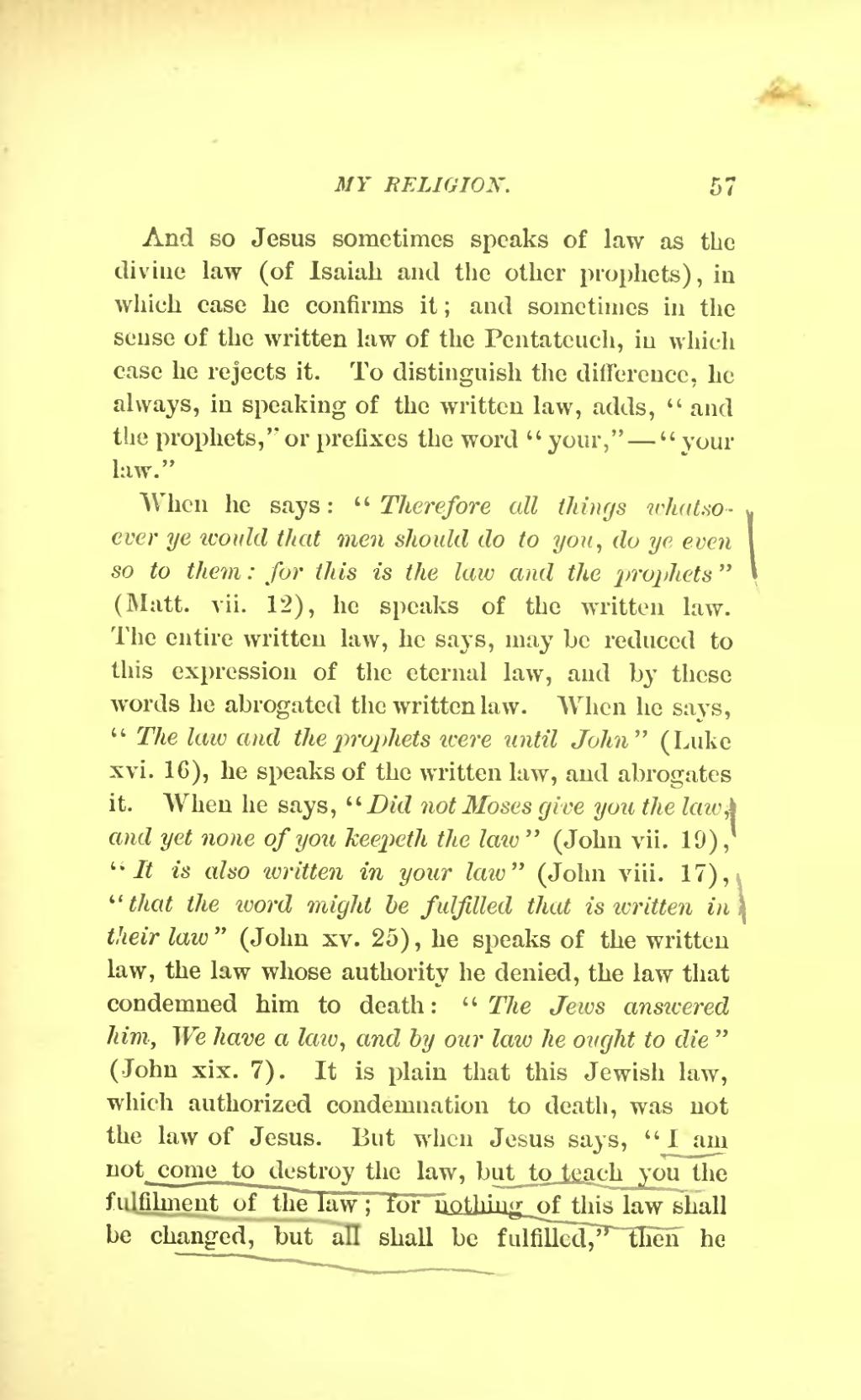And so Jesus sometimes speaks of law as the divine law (of Isaiah and the other prophets), in which case he confirms it; and sometimes in the sense of the written law of the Pentateuch, in which case he rejects it. To distinguish the difference, he always, in speaking of the written law, adds, “and the prophets,” or prefixes the word “your,”—“your law.”
When he says: “Therefore all things whatsoever ye would that men should do to you, do ye even so to them: for this is the law and the prophets” (Matt. vii. 12), he speaks of the written law. The entire written law, he says, may be reduced to this expression of the eternal law, and by these words he abrogated the written law. When he says, “The law and the prophets were until John” (Luke xvi. 16), he speaks of the written law, and abrogates it. When he says, “Did not Moses give you the law, and yet none of you keepeth the law” (John vii. 19), “It is also written in your law” (John viii. 17), “that the word might be fulfilled that is written in their law” (John xv. 25), he speaks of the written law, the law whose authority he denied, the law that condemned him to death: “The Jews answered him, We have a law, and by our law he ought to die” (John xix. 7). It is plain that this Jewish law, which authorized condemnation to death, was not the law of Jesus. But when Jesus says, “I am not come to destroy the law, but to teach you the fulfilment of the law; for nothing of this law shall be changed, but all shall be fulfilled,” then he
